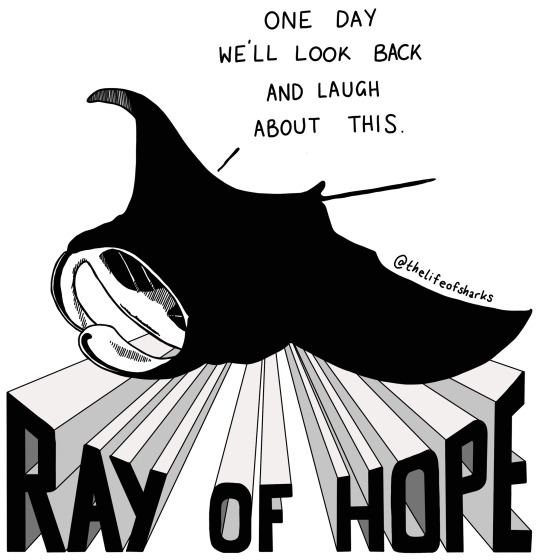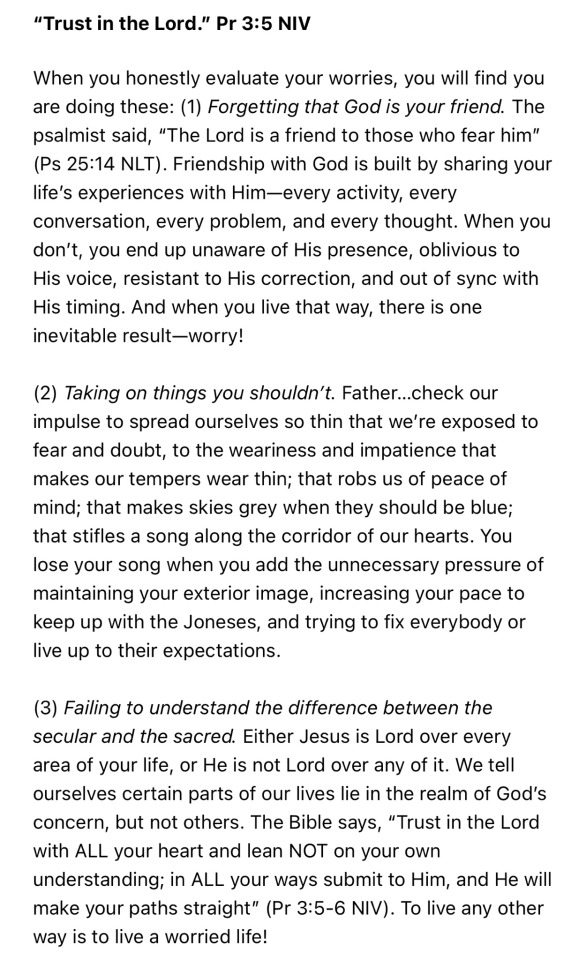#hope
Text
Federal regulators on Tuesday [April 23, 2024] enacted a nationwide ban on new noncompete agreements, which keep millions of Americans — from minimum-wage earners to CEOs — from switching jobs within their industries.
The Federal Trade Commission on Tuesday afternoon voted 3-to-2 to approve the new rule, which will ban noncompetes for all workers when the regulations take effect in 120 days [So, the ban starts in early September, 2024!]. For senior executives, existing noncompetes can remain in force. For all other employees, existing noncompetes are not enforceable.
[That's right: if you're currently under a noncompete agreement, it's completely invalid as of September 2024! You're free!!]
The antitrust and consumer protection agency heard from thousands of people who said they had been harmed by noncompetes, illustrating how the agreements are "robbing people of their economic liberty," FTC Chair Lina Khan said.
The FTC commissioners voted along party lines, with its two Republicans arguing the agency lacked the jurisdiction to enact the rule and that such moves should be made in Congress...
Why it matters
The new rule could impact tens of millions of workers, said Heidi Shierholz, a labor economist and president of the Economic Policy Institute, a left-leaning think tank.
"For nonunion workers, the only leverage they have is their ability to quit their job," Shierholz told CBS MoneyWatch. "Noncompetes don't just stop you from taking a job — they stop you from starting your own business."
Since proposing the new rule, the FTC has received more than 26,000 public comments on the regulations. The final rule adopted "would generally prevent most employers from using noncompete clauses," the FTC said in a statement.
The agency's action comes more than two years after President Biden directed the agency to "curtail the unfair use" of noncompetes, under which employees effectively sign away future work opportunities in their industry as a condition of keeping their current job. The president's executive order urged the FTC to target such labor restrictions and others that improperly constrain employees from seeking work.
"The freedom to change jobs is core to economic liberty and to a competitive, thriving economy," Khan said in a statement making the case for axing noncompetes. "Noncompetes block workers from freely switching jobs, depriving them of higher wages and better working conditions, and depriving businesses of a talent pool that they need to build and expand."
Real-life consequences
In laying out its rationale for banishing noncompetes from the labor landscape, the FTC offered real-life examples of how the agreements can hurt workers.
In one case, a single father earned about $11 an hour as a security guard for a Florida firm, but resigned a few weeks after taking the job when his child care fell through. Months later, he took a job as a security guard at a bank, making nearly $15 an hour. But the bank terminated his employment after receiving a letter from the man's prior employer stating he had signed a two-year noncompete.
In another example, a factory manager at a textile company saw his paycheck dry up after the 2008 financial crisis. A rival textile company offered him a better job and a big raise, but his noncompete blocked him from taking it, according to the FTC. A subsequent legal battle took three years, wiping out his savings.
-via CBS Moneywatch, April 24, 2024
--
Note:
A lot of people think that noncompete agreements are only a white-collar issue, but they absolutely affect blue-collar workers too, as you can see from the security guard anecdote.
In fact, one in six food and service workers are bound by noncompete agreements. That's right - one in six food workers can't leave Burger Kings to work for Wendy's [hypothetical example], in the name of "trade secrets." (x, x, x)
Noncompete agreements also restrict workers in industries from tech and video games to neighborhood yoga studios. "The White House estimates that tens of millions of workers are subject to noncompete agreements, even in states like California where they're banned." (x, x, x)
The FTC estimates that the ban will lead to "the creation of 8,500 new businesses annually, an average annual pay increase of $524 for workers, lower health care costs, and as many as 29,000 more patents each year for the next decade." (x)
Clearer explanation of noncompete agreements below the cut.
Noncompete agreements can restrict workers from leaving for a better job or starting their own business.
Noncompetes often effectively coerce workers into staying in jobs they want to leave, and even force them to leave a profession or relocate.
Noncompetes can prevent workers from accepting higher-paying jobs, and even curtail the pay of workers not subject to them directly.
Of the more than 26,000 comments received by the FTC, more than 25,000 supported banning noncompetes.
#seriously cannot emphasize enough that this is going to be a huge deal for so so many people#it could seriously drag up wages in food and service industries in particular#especially in the long run#and also massively reshape tech and video game industries#do you have any idea how many game devs are legally not allowed to start their own studios? probably most of them#and that's about to change for the better!!#ftc#noncompete#united states#us politics#business#business news#biden administration#voting matters#democrats#federal trade commission#video game industry#game devs#fast food#fast food workers#labor#labor rights#workers rights#blue collar#service workers#good news#hope
1K notes
·
View notes
Text

342 notes
·
View notes
Text
An Ode: For My Mother

Dearest mother, I wish to write to thee
On this motherly day of love and glee
To tell you how much I appreciate
The role that you’ve played in shaping my fate.
For, without your patient, loving way,
I would most certainly have gone astray.
Yet with all your strength (and some of your genes)
I successfully made it past my teens,
Through those times and on to the point in life
Filled with happiness, and a loving wife.
A wife with a quiet and gentle strength
That is right in line with your wavelength.
I’ll add her to my ever-growing list
Of the things I love that, through you, exist.
Things which, like you, there is no just other
(For, to me, you’re a most perfect mother).
And so, on this day of celebration
Of mothers all over god’s creation,
I would just like to simply stop and say —
I love you Mother; every single day.
202 notes
·
View notes
Text
Reason to Live #10635
The Moon, especially the full moon. Space in general. Weird stuff bigger than us forever. – Guest Submission
(Please don't add negative comments to these posts.)
148 notes
·
View notes
Text
#pawglife#british royal family#military#fox#taylor hing#lgbtlove#natural bewbs#adriana lima#hairy gay#hope#figure#bruce wayne x reader#halsey
121 notes
·
View notes
Text
95 notes
·
View notes
Text
#short skirt#beta boi#cupcakes#mermay#archives#sunsets#masterbation#small dick humiliation#product design#military#fox#taylor hing#lgbtlove#hairy gay#hope
124 notes
·
View notes
Text

beeillustrates
#self care#positivity#mental health#self love#positive thoughts#positive mental attitude#healing journey#self healing#healing#hopecore#hope#self care reminder#self care is not selfish#self improvement#self compassion#mental illness#actually mentally ill#positive thinking#be kind to yourself#love yourself
49 notes
·
View notes
Text

Rise Above Worry - Part 2

#god#jesus#christ#holy spirit#bible#scripture#christianity#Christian#church#prayer#praise#worship#faith#hope#love#Grace#mercy#daily devotional#devotional
28 notes
·
View notes
Text
"Clothing tags, travel cards, hotel room key cards, parcel labels … a whole host of components in supply chains of everything from cars to clothes. What do they have in common? RFID tags.
Every RFID (Radio Frequency Identification) tag contains a microchip and a tiny metal strip of an antenna. A cool 18bn of these are made – and disposed of – each year. And with demands for product traceability increasing, ironically in part because of concerns for the social and environmental health of the supply chain, that’s set to soar.
And guess where most of these tags end up? Yup, landfill – adding to the burgeoning volumes of e-waste polluting our soils, rivers and skies. It’s a sorry tale, but it’s one in which two young graduates of Imperial College London and Royal College of Art are putting a great big green twist. Under the name of PulpaTronics, Chloe So and Barna Soma Biro reckon they’ve hit on a beguilingly simple sounding solution: make the tags out of paper. No plastic, no chips, no metal strips. Just paper, pure and … simple … ? Well, not quite, as we shall see.
The apparent simplicity is achieved by some pretty cutting-edge technical innovation, aimed at stripping away both the metal antennae and the chips. If you can get rid of those, as Biro explains, you solve the e-waste problem at a stroke. But getting rid of things isn’t the typical approach to technical solutions, he adds. “I read a paper in Nature that set out how humans have a bias for solving problems through addition – by adding something new, rather than removing complexity, even if that’s the best approach.”
And adding stuff to a world already stuffed, as it were, can create more problems than it solves. “So that became one of the guiding principles of PulpaTronics”, he says: stripping things down “to the bare minimum, where they are still functional, but have as low an environmental impact as possible”.
...how did they achieve this magical simplification? The answer lies in lasers: these turn the paper into a conductive material, Biro explains, printing a pattern on the surface that can be ‘read’ by a scanner, rather like a QR code. It sounds like frontier technology, but it works, and PulpaTronics have patents pending to protect it.
The resulting tag comes in two forms: in one, there is still a microchip, so that it can be read by existing scanners of the sort common within retailers, for example. The more advanced version does away with the chip altogether. This will need a different kind of scanner, currently in development, which PulpaTronics envisages issuing licences for others to manufacture.
Crucially, the cost of both versions is significantly cheaper than existing RFID kit – making this a highly viable proposition. Then there are the carbon savings: up to 70% for the chipless version – so a no-brainer from a sustainability viewpoint too. All the same, industry interest was slow to start with but when PulpaTronics won a coveted Dezeen magazine award in late 2023, it snowballed, says So. Big brands such as UPS, DHL, Marks & Spencer and Decathlon came calling. “We were just bombarded.” Brands were fascinated by the innovation, she says, but even more by the price point, “because, like any business, they knew that green products can’t come with a premium”."
-via Positive.News, April 29, 2024
--
Note: I know it's still in the very early stages, but this is such a relief to see in the context of the environmental and human rights catastrophes associated with lithium mining and mining for rare earth metals, and the way that EVs and other green infrastructure are massively increasing the demand for those materials.
I'll take a future with paper-based, more humane alternatives for sure! Fingers crossed this keeps developing and develops well (and quickly).
#I do really wish it could be read by regular scanners already though#that's what I thought at first#and that would've been fucking amazing#but this is still pretty cool#electronics#science and technology#green technology#ewaste#landfill#lithium#lithium mining#human rights#environment#climate action#climate hope#rfid#rfid technology#rfid tags#good news#hope
312 notes
·
View notes
Text

#Unknown#motivation#quotes#poetry#literature#relationship quotes#writing#original#words#love#relationship#thoughts#lit#prose#inspiring quotes#life quotes#quoteoftheday#love quotes#poem#aesthetic#lifequotetoday#beautiful quote#hope#quotes about life#motivating myself#get motivated#dailyquotes#life quote motivation
21 notes
·
View notes
Text
Reason to Live #10642
Ducks exist, one of the many wonders of the world. – Guest Submission
(Please don't add negative comments to these posts.)
66 notes
·
View notes
Text


we can not become what we want by remaining what we are . ݁₊ ⊹ . ݁˖ . ݁
#girl blogger#pink pilates princess#pink#victoria’s secret#that girl#healthy#workout#wellness girl#girly girl#coquette#healing#healing girl era#health & fitness#health and wellness#healthylifestyle#healing journey#acceptance#hope#forgiveness#positive affirmations#positive quotes#new possibilities#pink pilates girl#pink aesthetic#p1nkribb0ns
21 notes
·
View notes
Text
Ne bu dert
Ne bu keder
At hepsini bir yana
Sen de bir gülümse yeter!
Herkese iyi geceler. 😅
26 notes
·
View notes
Text
Hope was a dangerous, disquieting thing, but he thought perhaps he liked it.
-The Foxhole Court
#quotes#book quotes#literature#books & libraries#life quotes#hope#nora sakavic#all for the game#the foxhole court
20 notes
·
View notes
Text
Heyyyy. So it turns out life is constantly changing in every way imaginable, both good and bad, and it’s impossible to tell which way it’ll be. You can never be fully prepared for when things get bad. So all you really can do is keep going, and help as many people as you possibly can. Things might never get better. But you have to keep moving. Life will change, with or without you. All we can do is try to keep up.
20 notes
·
View notes